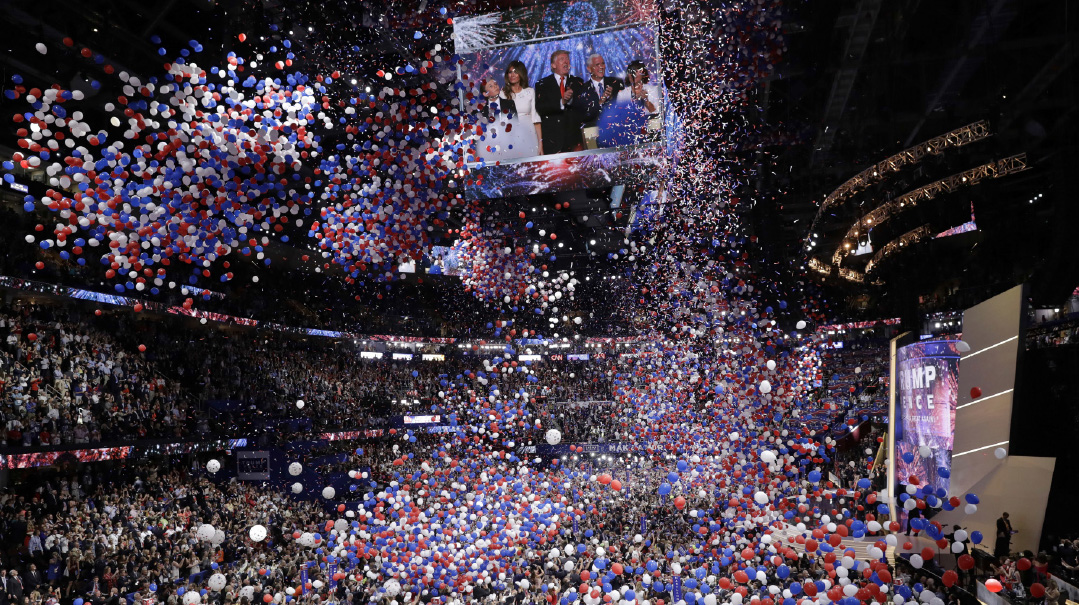Coronavirus Cancels the Convention

Can virtual conventions fire up the 2020 race?

On Friday at noon, I got an email informing me that my request for press credentials to attend the Democratic National Convention in Milwaukee was being denied. Due to public health guidance and social distancing protocols, the DNC had to drastically reduce the number of attendees to ensure the safety of convention participants.
Oh, well. I guess I’ll have to cancel the reservation for my hotel room in Milwaukee, which I booked months ago. I already had to cancel my reservations for Charlotte, North Carolina, where the GOP convention was originally scheduled to take place. Instead, Republicans are now planning to hold their convention in Jacksonville, Florida. But things are already looking murky: The Sunshine State registered over 10,000 new coronavirus cases on Saturday, 515 of whom were in Duval County, where Jacksonville is located. It is hard to see a scenario in which the event will take place as it was initially intended.
All of this is a shame, because political conventions are events not to be missed. I vividly recall both the Democratic and Republican conventions of 2016, which were large, complex undertakings that welcomed about 50,000 participants each. There were vendors selling political paraphernalia on the streets, political celebrities causally walking the convention grounds, talk show hosts shooting the breeze with attendees, and senators glad-handing with Mr. and Mrs. American Voter. This year, both events will be a shadow of themselves, and American democracy will be lesser for it.
As much as Donald Trump is at his best before large audiences, partisans will be reluctant to attend such a large gathering with coronavirus in the midst of its second wave. The conventions next month, therefore, are going to be different from any others in modern American political history. In normal times, the nominees get a bump in the polls following the conventions. But will the new convention format produce a similar result?
Robert S. Erikson, a professor at Columbia University who specializes in American political behavior, told Mishpacha that party conventions tend to have outsized influence on political behavior. “The conventions matter,” he said. ”Almost always, the party leading in the polls right after the conventions ends up winning the popular vote in November, although not always in the Electoral College.”
However, Erikson noted, no modern president has been so far behind in the polls as Trump while campaigning for a second term. “You have to go back to 1948 [when President Truman beat Thomas E. Dewey] to find an example of a sitting president coming from behind to win,” he said.
When trying to analyze how this year’s convention format might benefit Democratic nominee Joe Biden, Professor Erikson said that the muted tone of the conventions would likely favor the candidate leading in the polls going into the conventions. In other words, both candidates will get less of a bounce.
Robert Shapiro, a professor of political science at Columbia University, said that for the television or Internet viewer, the conventions will look largely the same. Both will still host a lineup of speakers and many of the same agenda items and policy issues will be addressed.
“Everything will be the same except there will not be the large cheering crowd of delegates that make for a lot of the excitement,” he said.
Professor Shapiro predicts Republicans will likely try to gather some kind of significant crowd for Trump, who is so good in front of a large audience. The Democrats, however, will likely host a more subdued convention.
Still, each candidate could see a bump after the respective conventions, Shapiro said, if only because the events will be the primary focus of all media outlets for three full days.
“A lot of the normal convention is boring,” Shapiro noted, “so the coverage will focus on the main speakers, along with the presidential and vice-presidential candidates,” who are sure to deliver a show.
(Originally featured in Mishpacha, Issue 819)
Oops! We could not locate your form.













